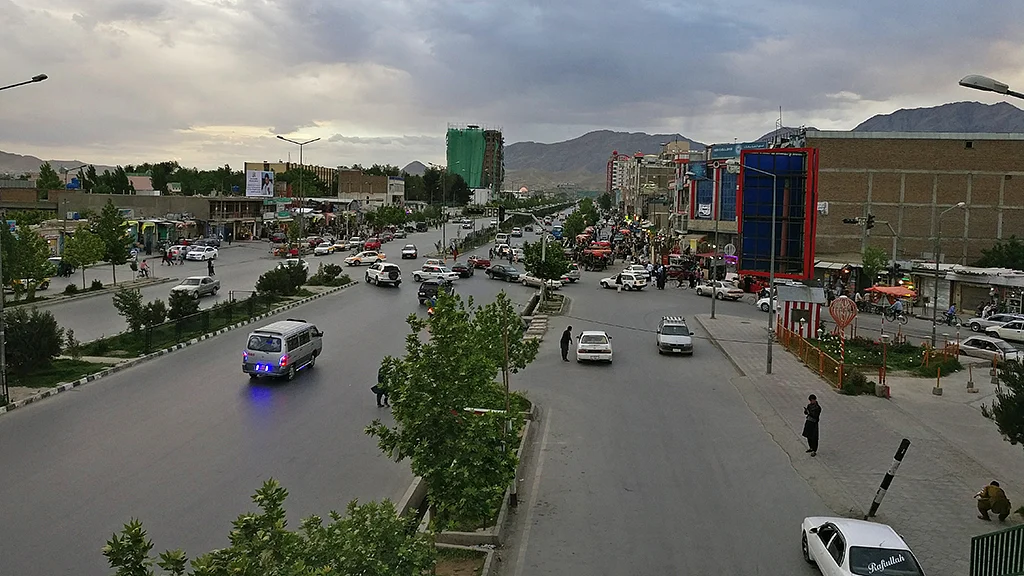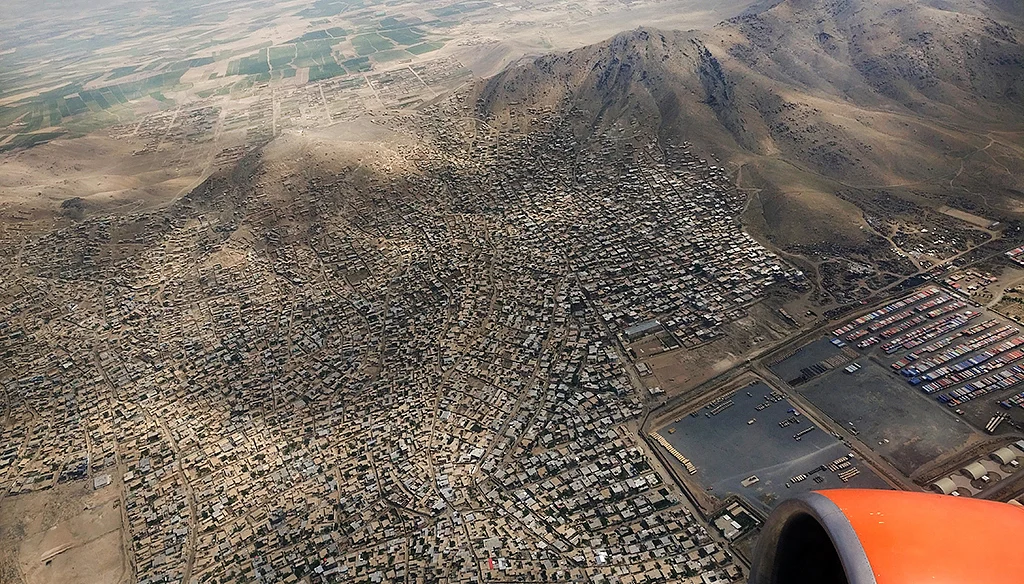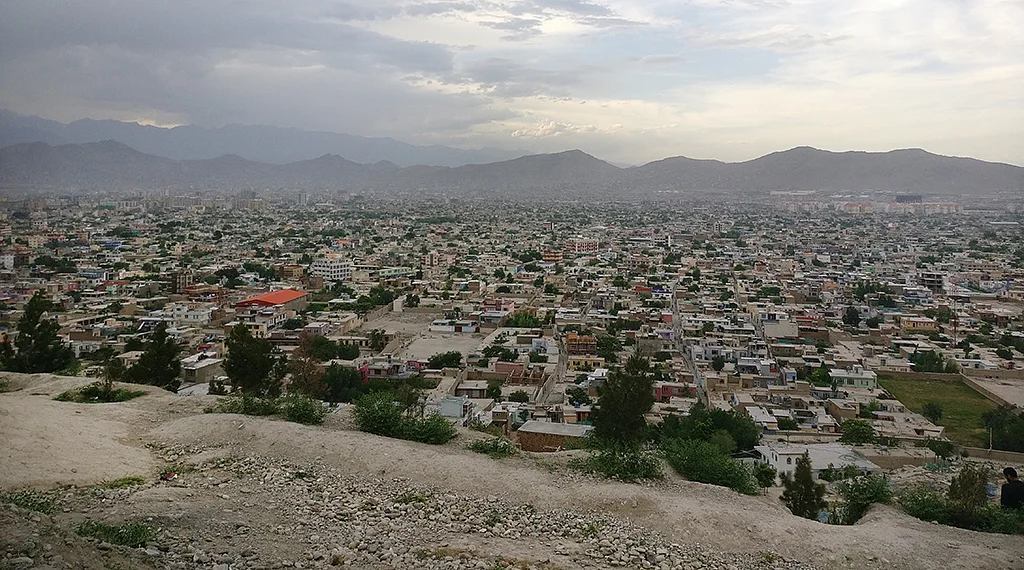Kabul: A city perpetually on the edge
Indians live on advisories, comprising mostly of warnings of yet another impending attack that can be launched anytime, anywhere

On the flight to Kabul from New Delhi, the adjacent seat was occupied by a resident of Tamil Nadu. A reticent man he finally confided as the plane landed at the Hamid Karzai International Airport that he worked as a mechanic at the Kabul airport.
“This airport is my home and workplace for the past ten years. I’ve never stepped out of it during this period,” he informed when asked how he liked the city. While the first-time visitor is bound to be taken aback by such statements, they are by no means uncommon.
With the unity Government of Afghanistan controlling barely one-third of the territory, most foreigners brace for a cloistered life in gated communities. Kabul is dotted with military bases. Besides the United States Armed Forces, there is NATO's International Security Assistance Force (ISAF) and Afghanistan’s own fledgling army.
On the way to the city, there are the ubiquitous security checkpoints, barricades and military vehicles fitted with machine guns. In the city, one comes across highly fortified homes of ex-warlords who have become part of the government now; security bunkers usually hidden from the public gaze, unusually high walls covered with coils of barbed wires and dozens of men equipped with assault rifles and big guns stand guard at the entrance and on roof tops.
Private security guards in combat dress and armed with Kalashnikovs welcome visitors even at the restaurants and shops. “Getting kidnapped or getting killed is always a prospect that we have come to terms with,” said Shah Asrar, a Kashmiri doctor who works at a private hospital in Kabul. He added nonchalantly: “so we avoid going to public places and stay focussed on our work.”

“We are advised to travel outside Kabul by air only. Most of the roads are unsafe outside the main city. They are always prone to attacks. Illegal check posts put up by militants dot all the major highways in Afghanistan,” he added, “As a matter of routine, we go straight to the hospital in a shared vehicle from the guest house and return in the same vehicle every evening. On Fridays—the official weekly holiday—we stay in the guest house.”
Advisories from the Indian embassy, shared over WhatsApp and on its website, are incessant and make for grim reading. “Stay vigilant. Avoid unnecessary public exposure. Avoid sites of demonstrations and social tension. All movement outdoors must be unpredictable, and only if unavoidable. Beware of phone calls. Be cautious about surroundings. Stay in touch with embassy officials and colleagues.”
An advisory on embassy’s website, issued in February read: “Visits to hotels, restaurants and international guest houses should be avoided as far as possible.”
Since the withdrawal of US forces, Afghan security forces are struggling to contain a surge in insurgency, with very little support from about 12,000 international troops that remain to train, advise and assist Afghan forces.
Taliban and ISIS—who control majority of the provinces— keep sending suicide bombers and triggering IED blasts in the cities like Kabul, Herat, Mazar-e-Sharief and Kandahar, targeting military and government installations, military convoys, diplomatic premises and hotels.

An advisory had warned Indians ahead of Wednesday’s deadly tanker blast in the diplomatic enclave of precisely such an attack.
Drug trafficking, arms proliferation, dacoity, murder, car lifting and theft are growing fast. “Incidents of car lifting, cell phone snatching, pick pocketing and other crimes are on the rise now. Such things were never so common in our society a few years ago,” says Fawad Bakhtari, who works as interpreter.
During my stay one evening, there was a sudden commotion outside a guest house —where I’d gone to visit some Indian doctors. A car had crashed into the boundary wall and security guards with raised Kalashnikovs had surrounded the vehicle but from a distance. The driver, shivering uncontrollably, was pleading for mercy.
He was trying to park the car, it seemed, when the guards surrounded him. He panicked, lost control and crashed the car into the boundary wall. A split second later he would have been shot but luckily, one of the doctors recognised him and shouted out that he was the tailor come to deliver stitched suits.
It would have been amusing but for the heavily perspiring and shivering man. He calmed down after some time and complained that the guards had not asked him about his identity even once before aiming to kill. “Nobody trusts anyone else in this country; no wonder everyone is waiting for a chance to leave,” he blurted out in disgust. Welcome to Kabul.
Follow us on: Facebook, Twitter, Google News, Instagram
Join our official telegram channel (@nationalherald) and stay updated with the latest headlines
- Afghanistan
- Tamil Nadu
- Kabul
- Taliban
- NATO
- ISIS
- Indian Embassy
- Hamid Karzai International Airport
- United States Armed Forces
- International Security Assistance Force (ISAF)
- Shah Asrar
- Advisories
- Mazar-e-Sharief
- Kandahar
- Fawad Bakhtari
- Kalashnikovs
- Government of Afghanistan
